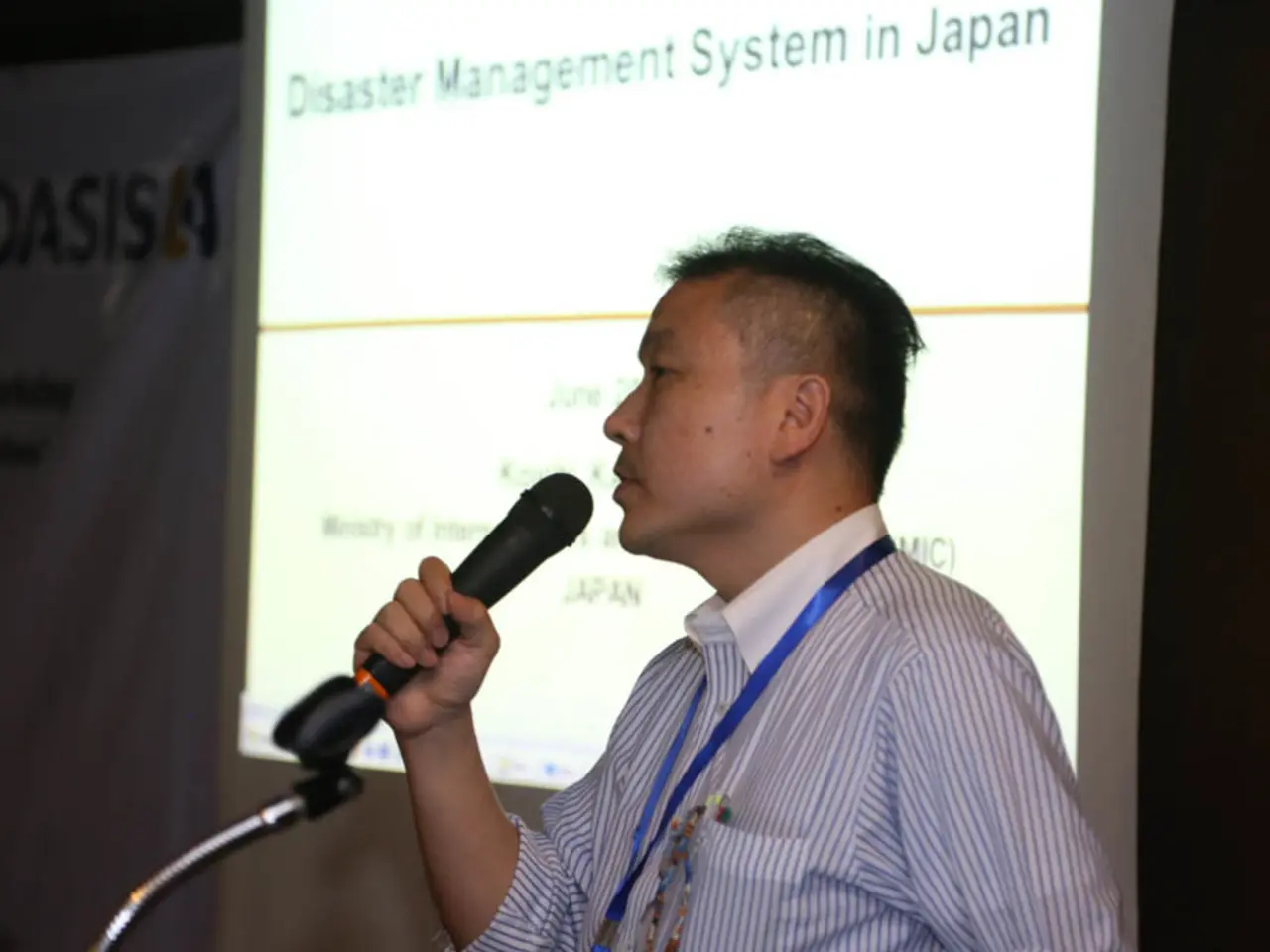People's part in protecting the country's security
In the heart of East Asia, Taiwan is taking bold steps to ensure its survival and security in the face of various challenges. Under President Lai Ching-te's administration, a comprehensive civil resilience plan, known as "whole-of-society resilience," has been significantly advanced since mid-2024.
This forward-thinking strategy emphasizes a comprehensive defense strategy that integrates civilians, government agencies, and the private sector. The goal is to prepare for military escalation, natural disasters, cybersecurity threats, and information warfare.
Key elements of implementation include the formation of the Whole-of-Society Defense Resilience Committee, the training of a civilian defense force, emergency food supply planning, and regular large-scale drills integrating military and civilian elements.
The Whole-of-Society Defense Resilience Committee, established by President Lai in June 2024, has been instrumental in coordinating preparedness efforts across society. The committee held initial meetings in September and December 2024 to discuss strategies and plans.
The training goal of 400,000 people for a civilian defense force, with about 270,000 active members or reservists, underscores civilian mobilization as a defensive pillar. This force is expected to play a crucial role in times of crisis, providing support to the military and ensuring the safety of the population.
Emergency food supply planning is another critical component of the plan. Strategies to sustain Taiwan’s 23.4 million population for at least seven months under blockade scenarios include rationing food, increasing local agricultural production, and promoting aquaculture.
Since 2025, civil defense and air defense drills have been integrated into comprehensive “urban resilience exercises,” patterned alongside Taiwan’s Han Kuang military exercises. These drills test wartime readiness, including evacuation, blackouts, shelter-in-place orders, and transportation protocols, involving mass rapid transit stations and stringent compliance enforced by fines.
The expansion of this approach culminated in National Solidarity Month in July 2025, which combined these urban resilience drills with military exercises to validate societal readiness in extreme situations and enhance military-civilian cooperation.
Financial commitment is growing, with the defense budget projected to exceed 3% of GDP in 2026 to further boost self-defense capabilities and economic resilience, specifically in key industry sectors such as semiconductors and AI, which are integral to Taiwan’s national security and civil resilience capacity.
As we move forward, it's clear that the Lai administration is committed to turning this creed into a tangible national civil resilience plan. The plan is a cardinal strength for Taiwan, addressing practical needs like food storage, medical supplies, and emergency services.
Supporting a civil resilience plan would strengthen Taiwan, while blocking it would expose the opposition. A comprehensive resilience plan would help defend Taiwan's sovereignty and legitimacy in the eyes of its own people.
The Lai administration has pledged "peace through strength." To achieve this, the government should expand food and medicine reserves, decentralize fuel storage, and harden critical infrastructure against attack. Debates about national defense have focused excessively on weapons and procurement, while neglecting resilience.
It's time to bring the public into the plan, with clear guidance on how to prepare for a crisis. National defense is considered to encompass daily life aspects such as dining, pharmacy visits, water supply, and electricity.
John Cheng, a retired businessman from Hong Kong living in Taiwan, believes that this plan is crucial for Taiwan's future. As we navigate the complexities of the modern world, it's clear that resilience is a cardinal strength.
[1] Taiwan News, "Whole-of-Society Defense Resilience Committee Holds Initial Meetings," September 15, 2024. [2] Central News Agency, "Lai Ching-te Announces Formation of Whole-of-Society Defense Resilience Committee," June 1, 2024. [3] Taiwan Today, "Taiwan's National Solidarity Month: Testing Societal Readiness in Extreme Situations," July 31, 2025. [4] Focus Taiwan, "Taiwan's Defense Budget to Exceed 3% of GDP in 2026," June 15, 2025.
- The Whole-of-Society Defense Resilience Committee, established by President Lai in June 2024, plays a crucial role in the policy-and-legislation aspect, coordinating preparedness efforts across Taiwan, with a focus on civilians, government agencies, and the private sector for the purpose of ensuring Taiwan's survival and security.
- Under President Lai Ching-te's administration, the pursuit of a comprehensive civil resilience plan, known as "whole-of-society resilience," is a significant part of the politics and general-news landscape, encompassing discussions on food and medicine reserves, decentralized fuel storage, and hardening critical infrastructure, all aimed at enhancing Taiwan's overall resilience.







